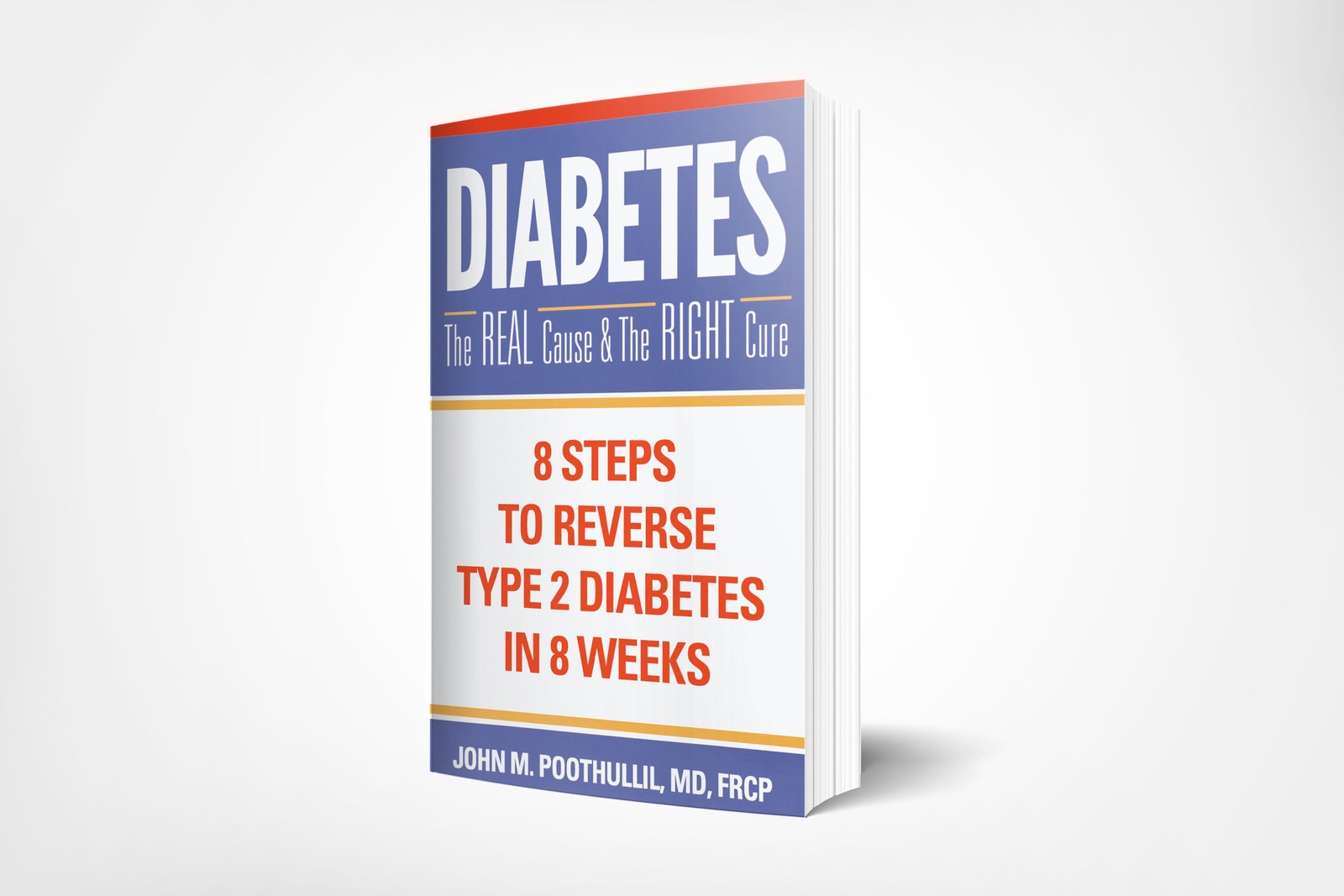Many people set a goal of losing weight after the start of each New Year. If you want to commit long-term to a new diet and eating habits, the best way to do it is to reconnect with your “authentic” weight.
I believe that every person has access to this wise method for determining if you are carrying too much fat in your body. Being overweight sets the stage for the switch from glucose to fatty acids as the fuel your muscles burn, leading to high blood sugar and potentially Type 2 diabetes.
My method of losing weight is what I call “feeling your authentic weight.” Perhaps you have never thought about your weight in these terms, but once you begin reflecting on it, and being honest with yourself, you will develop a good sense of what your weight should be. Becoming mindful of your authentic weight connects you to your brain’s way of signaling that you are exceeding the weight that is right for you.

When you are in tune with your authentic weight, you will immediately sense it when you gain a few extra pounds because you start to feel uncomfortable at first. Your stomach feels bloated, you may feel some muscle pains, or you may feel slower and tired more often.
When you exceed your authentic weight, you will usually find yourself thinking something like, “Gee, I’m getting heavy. Maybe I need to lose a few pounds.”
This intuition is your signal that it is time to lose weight. Unfortunately, most people tend to rationalize their weight gain once they exceed their authentic weight by a few pounds. They attribute it to stress, aging, busy days at work, family obligations, lack of time to exercise, the discovery of a new food they love to eat, or simply that other people around them are gaining weight, too. Such rationalization becomes increasingly convincing over time because your brain tends to believe ideas it repeats.
Your authentic body weight is a measure of the total mass of all components of your body including bone, muscle, organs, blood, fat, and water. The role of each of these components in contributing to one’s weight differs in every individual in the world.
You could be tall and small-boned with lots of muscle, or short and big-boned with regular muscle—and weigh the same. Only you can intuitively know your authentic weight based on what your brain assesses and tells you (if you are willing to listen).

Your authentic weight can also change as you exercise and age because the contributions of each component of weight can change. If you begin working out, and adding muscle, you might gain muscle weight but your brain knows you are still in your authentic range because it takes into account your extra muscle mass. If you are aging and losing muscle, but gain 10 pounds in body fat, your brain will sense that your authentic weight is now skewed towards fat, even though you may weigh the same.
So begin sensing what you believe is your authentic weight. For most people, it is the weight you were when you were in your late teens or early 20s.
Here are some commonly asked questions regarding weight gain and how to avoid it.
What causes weight gain?
Weight gain in an adult is the result of fat produced from excess food calories.
Why not use calorie restriction for weight control?
Voluntary calorie restriction, fasting, or medications can result in weight loss but not in weight maintenance because you can’t ensure a timely intake of all needed nutrients. Nobody knows the nutrient concentration of foods you eat, the nutrient needs of the body, or the available reserves of nutrients at the time of your meal.

How can I decide how much food I need to consume?
The sensation of hunger is created when the body needs nutrients, not energy because there is no energy-counting mechanism in the mouth, the location of food entry to control your food intake. However, the brain creates the sensation of enjoyment when needed nutrients are detected by sensors in the mouth. The intensity of enjoyment is reduced after a sufficient amount of food is consumed, indicating satisfaction with the intake of that food. So, the key is to eat what you enjoy but more importantly, enjoy what you eat. This means that you should stop eating that food when the intensity of enjoyment drops during a meal. That is your signal that you have had enough food.
How can I prevent weight gain?
Consuming complex carbohydrates in the form of grains and grain flour products is the major cause of weight gain. Before the epidemic of obesity started about 60 years ago, grains and grain flour products contributed less than a third of daily food energy intake. So, if you can minimize the intake of grain-based foods you can prevent unwanted weight gain. Your aim should be to maintain your authentic weight, which is the weight you have when your fasting blood glucose, triglyceride, and cholesterol levels are normal, regardless of your physical appearance or classification based on weight tables of BMI charts.
How can I know If I am eating correctly?
Check your weight once a day. If there is a wide fluctuation, review the previous few meals and make adjustments. Sometimes it helps to reduce food intake in anticipation of expected overindulgence during a celebration. Accept that occasional overconsumption and corrections as normal. But overall, aim to be at your authentic weight.

Watch this video to learn more about authentic weight and BMI.
This week’s article is an adapted excerpt from “Diabetes: The Real Cause & The Right Cure”.
As a best-selling author and Nationally Syndicated Columnist, Dr. John Poothullil, advocates for patients struggling with the effects of adverse lifestyle conditions, particularly Type 2 diabetes.
Dr. John’s books, available on Amazon, and in bookstores, have educated and inspired readers to take charge of their health. There are many steps you can take to make changes in your health, but Dr. John also empowers us that we must demand certain changes in our healthcare system as well.
Follow or contact Dr. John at drjohnonhealth.com.
John Poothullill practiced medicine as a pediatrician and allergist for more than 30 years, with 27 of those years in the state of Texas. He received his medical degree from the University of Kerala, India in 1968, after which he did two years of medical residency in Washington, DC and Phoenix, AZ and two years of fellowship, one in Milwaukee, Wisconsin and the other in Ontario, Canada. He began his practice in 1974 and retired in 2008. He holds certifications from the American Board of Pediatrics, The American Board of Allergy & Immunology, and the Canadian Board of Pediatrics.During his medical practice, John became interested in understanding the causes of and interconnections between hunger, satiation, and weight gain. His interest turned into a passion and a multi-decade personal study and research project that led him to read many medical journal articles, medical textbooks, and other scholarly works in biology, biochemistry, physiology, endocrinology, and cellular metabolic functions. This eventually guided Dr. Poothullil to investigate the theory of insulin resistance as it relates to diabetes. Recognizing that this theory was illogical, he spent a few years rethinking the biology behind high blood sugar and finally developed the fatty acid burn switch as the real cause of diabetes.Dr. Poothullil has written articles on hunger and satiation, weight loss, diabetes, and the senses of taste and smell. His articles have been published in medical journals such as Physiology and Behavior, Neuroscience and Biobehavioral Reviews, Journal of Women’s Health, Journal of Applied Research, Nutrition, and Nutritional Neuroscience. His work has been quoted in Woman’s Day, Fitness, Red Book and Woman’s World.Dr. Poothullil resides in Portland, OR and is available for phone and live interviews.
To learn more buy the books at: amazon.com/author/drjohnpoothullil
Visit drjohnonhealth.com to learn more. You can also contact him at john@drhohnonhealth.com.
Or follow us on:
Instagram: instagram.com/DrJohnOnHealth
Facebook: facebook.com/JohnOnHealth /
Twitter: twitter.com/DrJohnonHealth
Youtube : @DrJohnPoothullil






